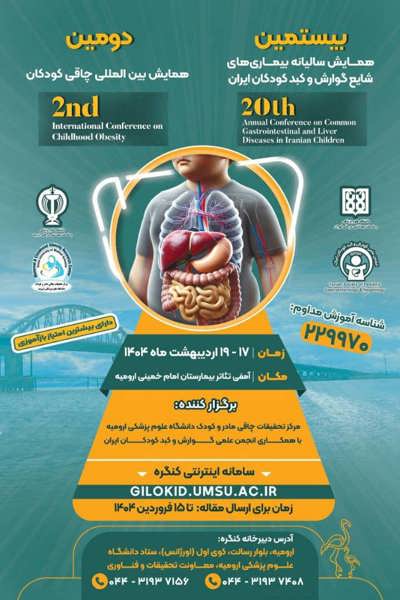0% Complete

صفحه اصلی
/
بیستمین همایش سالیانه بیماری های شایع گوارش و کبد کودکان ایران و دومین همایش بین المللی چاقی کودکان
نویسندگان :
کلمات کلیدی :
چکیده :
لیست مقالات بایگانی شده
Neda Malek Mohammadi - Mojtaba Keikha - Roya Kelishadi
Mohaddeseh Ghahremany - Faezeh Ghalichi - Razieh Vaezi
Sanaz Bohlouli Sardroudi - Zahra Firoozi - Sara Arefhosseini - Mehrangiz Ebrahimi-Mameghani
Aylin Ebrahimpour - Sajjad Moradi - Negar Moosaee Farahani
Samaneh Sepahi - Sakineh Nouri Saeidlou - Mohammad Yousefi
Negar Asadi - Gholamreza Asadi - Elham Yousefi - Shahram Khademvatan
Aylin Ebrahimpour - Laleh Payahoo - Yaser Khajebishak
Parinaz Kalejahi - Roshanak Samborani
Jalal Moludi - Maryam Sharifi - Marzieh Heidari - Arash Tandorost

